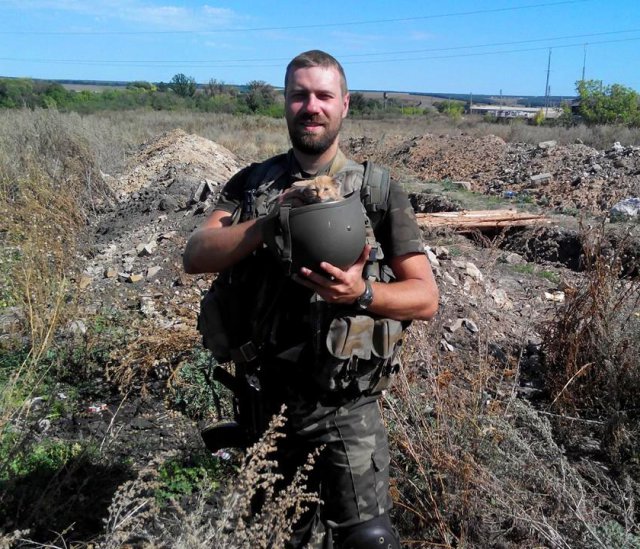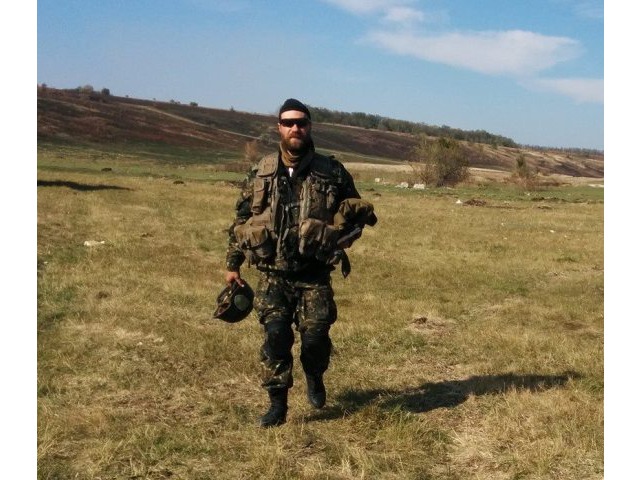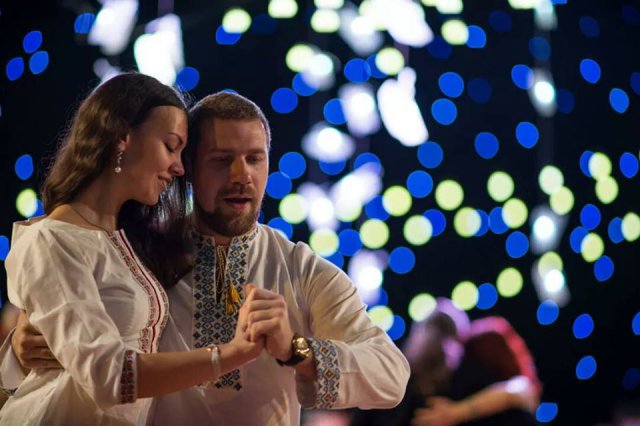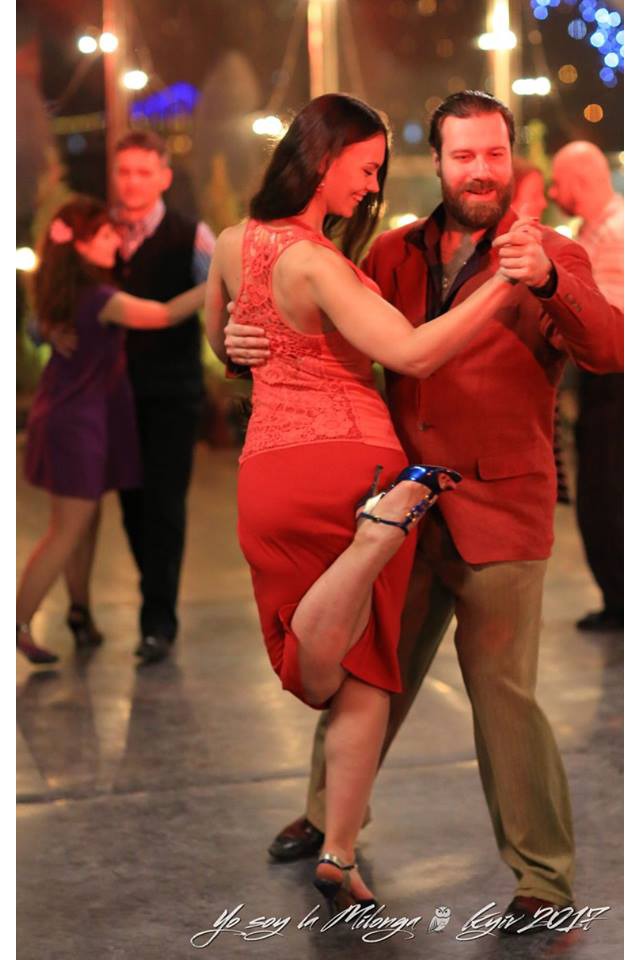Oleksiy served in the war zone from 2014. He didn’t wait to be called up, persistently visited the recruitment office and was finally deployed to the war zone in Eastern Ukraine. Oleksiy talks about his experiences:
I waited for that army draft notice, but it never came. Finally, I went there myself. Initially, I was told that I wasn’t needed… my specialty was translating and interpreting. The second time they offered to sign me up in the 12th Battalion in charge of defending strategic sites in Kyiv, but I didn’t want that. Finally, when I came in the third time, I was told that the 12th Battalion was leaving for the front in Luhansk. Yep, that certainly interested me more… They told me that we’d be leaving the next day, to go to the Central Commissioner’s Office, get official permission and pack my bags.

We arrived in Luhansk Oblast near the villages of Dmytrivka and Shchastya. Our unit was assigned a specific task – hold the position and provide support and cover to our artillery divisions. My first mission was to escort Uragan multiple rocket launchers. The enemy could easily ambush us and destroy these systems, so we were charged with getting them to their positions as quickly and safely as possible.
We experienced everything – attacks, shelling, fatigue, trauma, death were part of our daily reality. We often tried to establish contacts with the locals; we visited the schools and talked to the children. We ran into many curious situations… for example, one day we arrived in a village and a man walked up to me: “Great, our boys are here now! You know, guys, my neighbour’s a “separ”.” Then the neighbor ran up and shouted: “Yeah, man, you’re a “separ” yourself! You even helped them with the referendum!” We just shook our heads and smiled… of course, we knew who we were dealing with.

We had a lot of time on our hands, so I came up with the idea of teaching the guys – and interested locals – the basics of the Argentine tango. But, as you can imagine, it was rather difficult to implement my idea. Some locals told me about an old palace of culture where events and dances used to be organized, but they were too afraid to open it up again.
I finally managed to set up a small tango school during our rotation in Starobilsk. It wasn’t easy… especially finding premises and dancing partners. I knew right away that the boys wouldn’t get on the dance floor without a female partner. Fortunately, we found girls from the medical school; they had a dance group, so we found a room and started our classes. Our own female medics and visiting volunteers also attended.
It was really cool because the guys were able to break away from the sounds of war and listen to music. They could relax, hang loose for an hour or two, talk to girls and dance their heart out.
In this respect, the Argentine tango is fantastic – it’s beautiful, quiet but dramatic and melodious. Of course, you have to understand it first, but the boys like it a lot.
It’s a wonderful rehabilitation tool – prescribed movements, feeling your body and relaxing your mind. We don’t talk about our problems, but express them in action, on the dance floor where each dancer tells his own story.

Our guys don’t like to talk much…. just ask them how many have been to a psychologist. So, dancing, moving and not having to say anything helps them more. You feel that you’re holding someone and that someone’s embracing you… and that’s when you feel really needed! And, it’s a big step towards leaving behind the memories that are destroying your soul.
When I returned from the front, I decided to continue my school. Now, both my fiancée and I give lessons. During my military service, she made a special chevron for me portraying a dancing couple. It’s our school logo. The school is called “Abrazo Total” – literally total embrace.
We have a special free program for veterans and soldiers; they’re always welcome. The tango is a very effective form of psychophysiological rehabilitation. We also invite everyone – both soldiers and civilians – to get together and share their emotions on the dance floor.
The Argentine Tango is very particular as it focuses on the dancers. The man leads, the woman tries to sense where and why he is leading her. If we make a mistake, we just continue dancing… nothing else matters.

Different emotions and sensations rising to the surface during a tango embrace; the music vibrating in your hands, body and feet… The tango is a language that you can learn and use to convey your feelings when direct communication is too difficult, says a translator friend of mine.
The boys who’ve been demobilized are hypersensitive, less patient, with an acute sense of justice. Before, we’d observe a situation and say: “That’s not right. It shouldn’t be this way.” Now, we say: “What the hell! This has to be fixed somehow and right away!” Each situation at any time can turn into a conflict because everyone wants the country to change and become free and prosperous. That’s why our guys are out there, serving and protecting this country, and that’s why they’re so sensitive to injustice. They want to see honesty and justice.
I thought it would be a social project for soldiers and veterans, but we now see that many civilians have signed up for our dance classes. The soldiers come in small groups, and they love it! Many go to other milongas (places or events where the tango is danced). I hope more of our guys will come because they don’t realize how much it can give them, what a rich surge of feelings they arouse when dancing the Argentine tango and how it can help them in their life.
Just ask anyone who’s been dancing for more than a year, and they’ll tell you they’ve either made a good friend, changed jobs, found the love of their life, etc., but the changes have always been for the better.
Life is complex, unexpected, and turbulent, so stop putting things aside! If you’ve always wanted to dance but have never dared, don’t hesitate anymore!
Our school: “Abrazo Total”, 33 I. Kudri Str. Kyiv.




